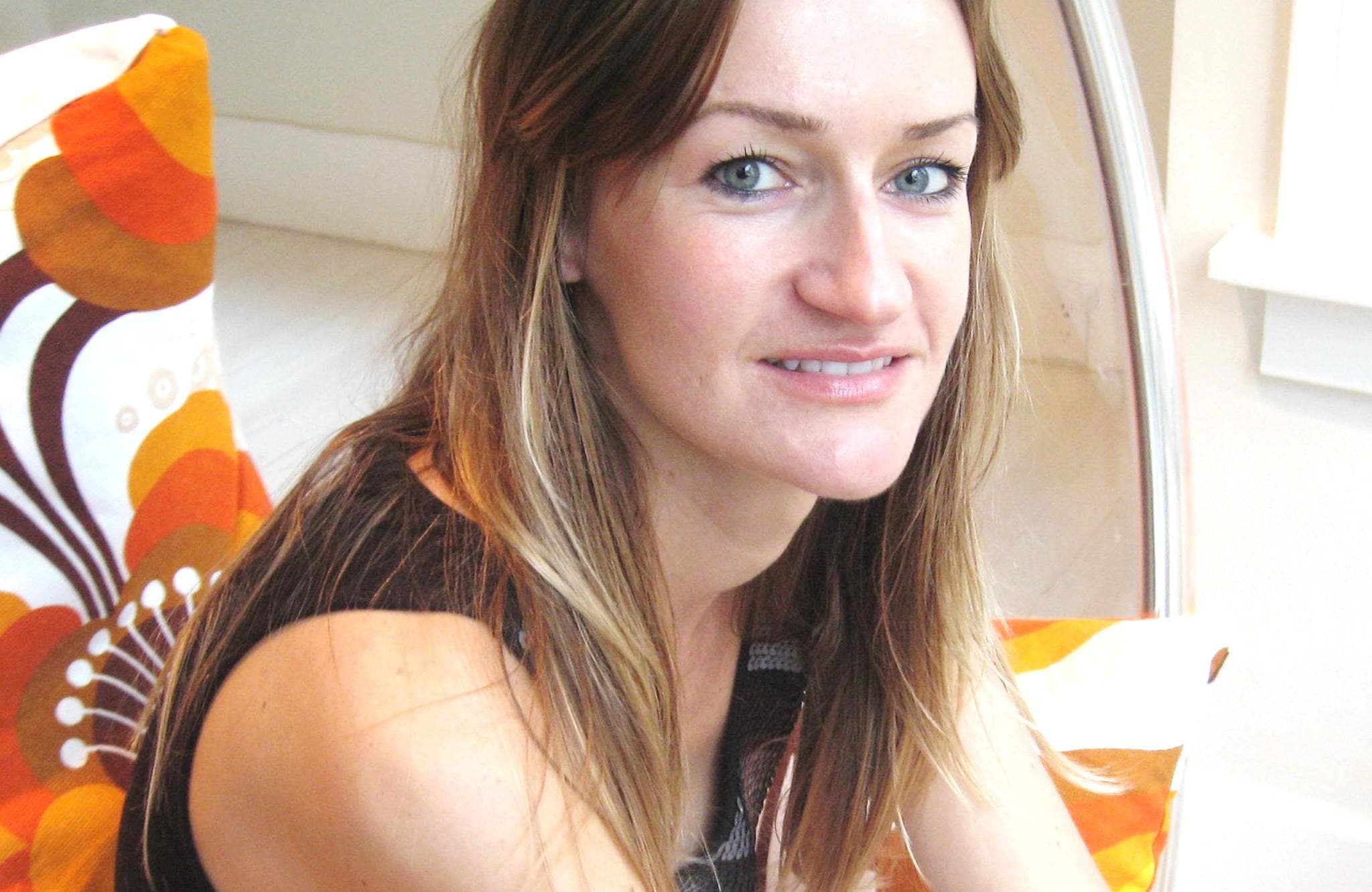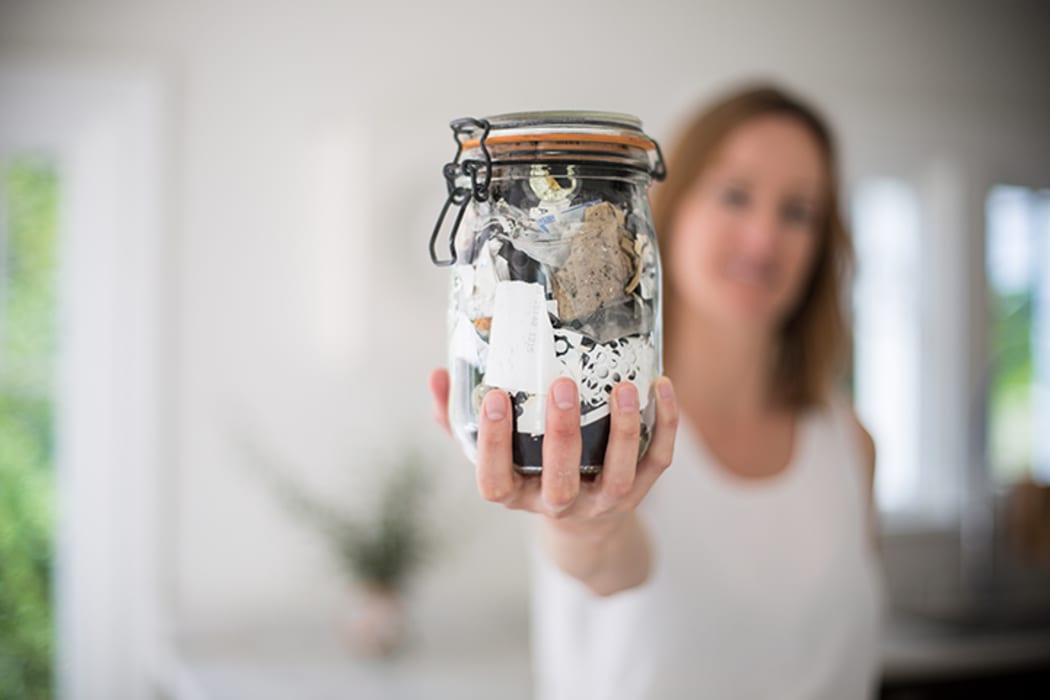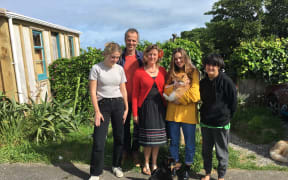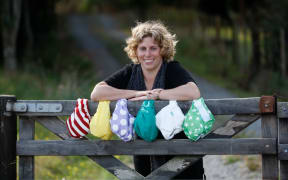If you want to minimise waste, first learn is how to refuse what you don't need, says Béa Johnson, a French-American who pioneered a 'zero waste' lifestyle over ten years ago.
Johnson's California-based family of four produce less than one litre of non-biodegradable rubbish every year.
(The average New Zealander generates 734 kilos of rubbish in the same period.)

Béa Johnson, the author of Zero Waste Home Photo: Facebook / Béa Johnson
Johnson and her American husband moved from Europe to California when she got pregnant so she could experience "the soccer mom life I'd seen on TV".
But after seven years, the couple started to become conscious of their energy and water consumption and began figuring out ways to reduce it.
At that time 'zero waste' was a term only used commercially and there were no books or guidelines on how to do it day to day, Johnson says.
"We felt sad about the future that we as parents were creating for our children, and that's what gave us the motivation to change."
A jar with all of the Johnson family waste from 2017 included things like fruit and vegetable stickers, a dental retainer, foam from a set of headphones, toothbrush bristles and a hair net.

Photo: Sees The Day, Inc
The only food product they buy packaged – in compostable wax paper – is butter, because making it at home from organic cream was too expensive and time-consuming.
Johnson– who studied fashion design – also makes her own beauty products (mascara and a multipurpose balm) and has a wardrobe of 15 multi-functional garments that fit into an airline carry-on bag.
The 'mantra' for home waste management (as described by New Zealand zero-waste lifestyler Hannah Blumhardt) is known as the 5 Rs:
- Refuse what you do not need
- Reduce what you may need but not so much of
- Reuse whatever you can
- Recycle (as a last resort)
- Everything else Rots (in your home compost)
These were developed from the original 3 Rs – Reduce, Reuse, Recycle.
The 3 Rs often led to too much emphasis on the value of recycling, Johnson says: "Not enough on reusing, and even less on actually reducing."
She encourages people to clear out what they don't need or use from their homes – but if you're a fashionista don't start with your closet and if you're a cook don't start with the kitchen.
"Start with an area that's easier for you and work up to an area that's harder."
Refusing things you're offered but don't really need – such as disposable promotional material, 'freebies' and cups, straws and bags – is the first step towards a zero-waste lifestyle, Johnson says.
"When you accept something you're creating a demand to make more. Every time you take a free plastic bag or a free pen from a conference or paper certificate it's a way for you to say 'Please, drill more oil from the ground, cut more trees'.
"If you can learn to say no on the spot you'll be amazed at how much stuff you can stop from coming into your home.
"Next time someone tries to hand you something, take a moment and ask yourself 'Do I really need this?'
"Every time you buy something you have the power to support a practice that is either sustainable or is not.
"If you feel there is a product you have to buy packaged or a product you have to buy new that you don't like the design of, let your voice be heard. If you don't say anything, nothing will change. It's up to you to propose alternatives that might actually have a chance of being implemented."
Béa Johnson is the author of the best-selling book Zero Waste Home.
The family living plastic-free
Rachel Benefield's family of five hasn't bought single-use plastic for six months. After attending a talk on zero-waste living, Rachel tried to do her first plastic-free grocery shop and hasn't looked… Audio
Inside a zero-waste home
Liam Prince and Hannah Blumhardt have been living zero-waste in Wellington for over two years now. They send nothing to landfill, use no more than one wheelie bin for recycling a year and buy no… Audio
Best features of 2017: Reduce, Reuse, Recycle
Earth-friendly innovations and lifestyles.




